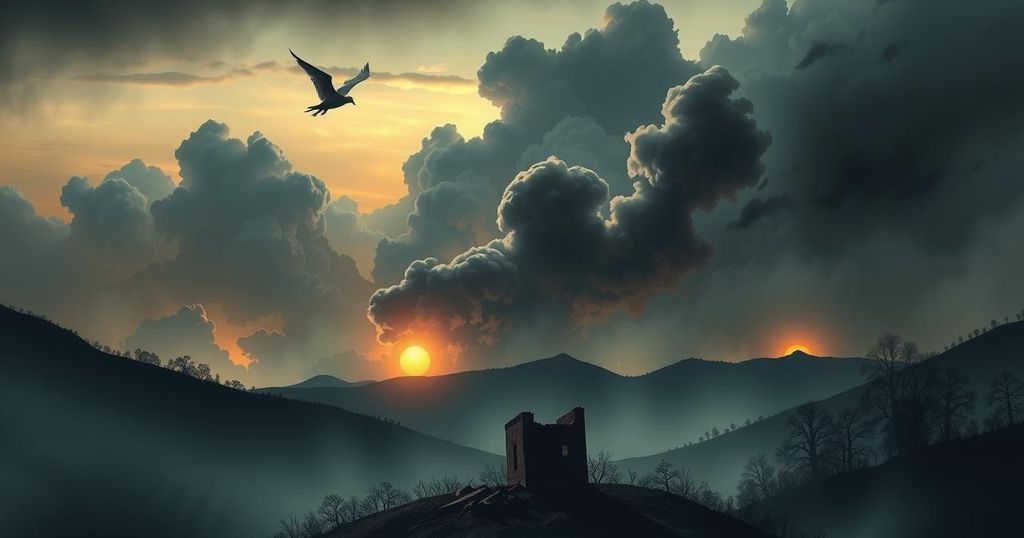M23 Rebels Claim Control of Goma: Implications and Future Prospects
M23 rebels have claimed control of Goma, the key city in eastern DRC, intensifying the ongoing conflict that has displaced millions. As fighting escalates, civilians are fleeing for safety amidst fears of violence. The complex regional dynamics involving Rwanda’s alleged support for M23 further complicate the crisis, prompting urgent calls for diplomatic interventions to prevent further escalation.
The M23 rebel group has asserted control over Goma, the capital of North Kivu province in the Democratic Republic of the Congo (DRC), marking a significant escalation in an ongoing conflict that has seen widespread violence and displacement. The group’s offensive intensified recently, culminating in their declaration of Goma’s capture, which poses a serious challenge to the Congolese army and raises urgent humanitarian concerns.
Fighting in Goma has caused mass panic among residents, prompting hundreds of thousands to flee to neighboring towns. During recent clashes, social media captured harrowing scenes of civilians escaping with belongings, unsure of their safety, as M23 forces advanced amidst heavy gunfire and explosions.
The M23, initially emerging in 2012, comprises Tutsi fighters aiming to advocate for their community’s rights. However, allegations persist that Rwanda supports M23 with military resources, a claim Rwanda vehemently denies. This historical context highlights the complexity and underlying tensions of the ongoing violence in eastern DRC.
Intensified military actions by M23 began earlier this year, with a string of territorial gains leading to Monday’s events. The assassination of the military governor of North Kivu province further destabilized the region, contributing to the urgency and chaos surrounding Goma as civilians fled amid fears of assault.
On the evening of Goma’s reported takeover, M23 fighters entered the city, clashing with remaining government forces and UN peacekeepers. Reports indicated mass surrenders from both government soldiers and mercenaries fearing retribution. M23 proclaimed Goma’s liberation, calling for congregating Congolese troops to disarm and gather.
Following Goma’s capture, experts expressed serious concerns about the DRC’s ability to reclaim the city militarily due to geographic challenges and increased M23 strength. Congolese authorities condemned Rwanda’s purported involvement, while leaders from various nations called for urgent diplomatic interventions to prevent further escalation.
The situation remains perilous, as international communities, particularly regional bodies like the East African Community, explore pathways to negotiations. Previous ceasefires have proven fragile, making the potential for sustained peace uncertain. Analysts warn that the seizure of Goma could precipitate further violence and additional civilian displacement, worsening an already dire humanitarian crisis.
The conflict involving the M23 rebel group in the Democratic Republic of the Congo has roots in ethnic tensions and struggles for resource control, particularly over the rich mineral deposits in eastern DRC. Since its inception, M23 has been implicated in a cycle of violence leading to significant displacement and suffering among local populations. External influences, particularly alleged support from Rwanda, further complicate the situation, making resolution increasingly challenging.
The declaration of control over Goma by M23 marks a pivotal moment in the ongoing conflict in eastern DRC. This development not only impoverishes the regional stability but also exacerbates the humanitarian crisis. Unless immediate diplomatic efforts are mobilized to address the escalating violence and cross-border tensions, the cycle of conflict and suffering for civilians is likely to persist.
Original Source: www.aljazeera.com




Post Comment